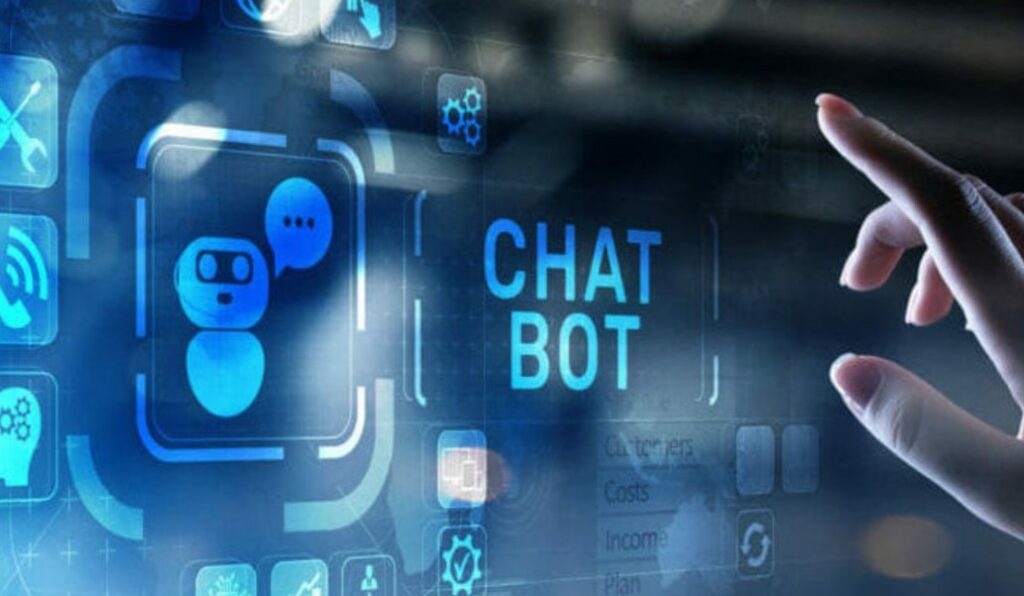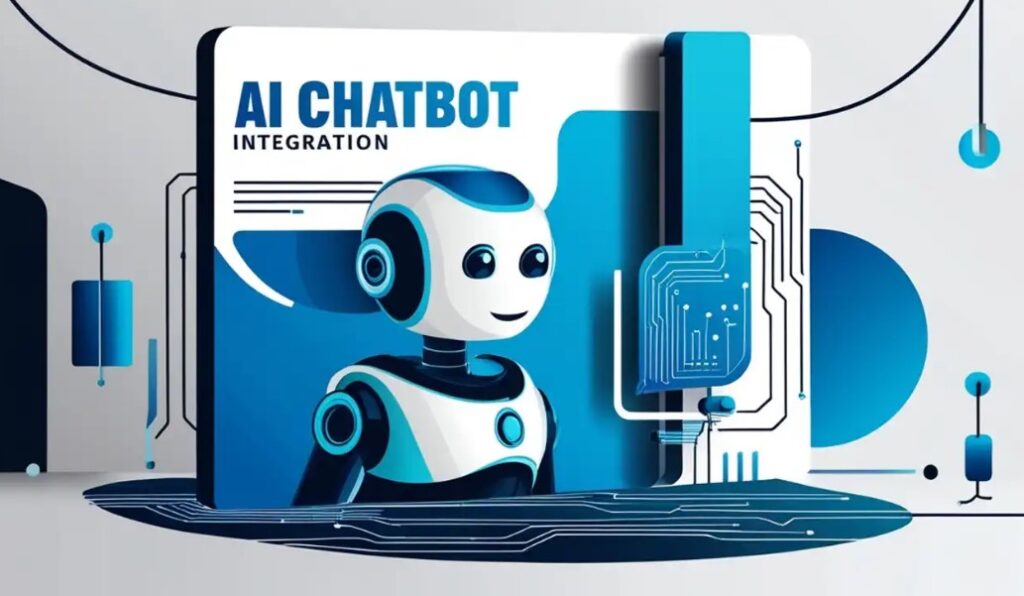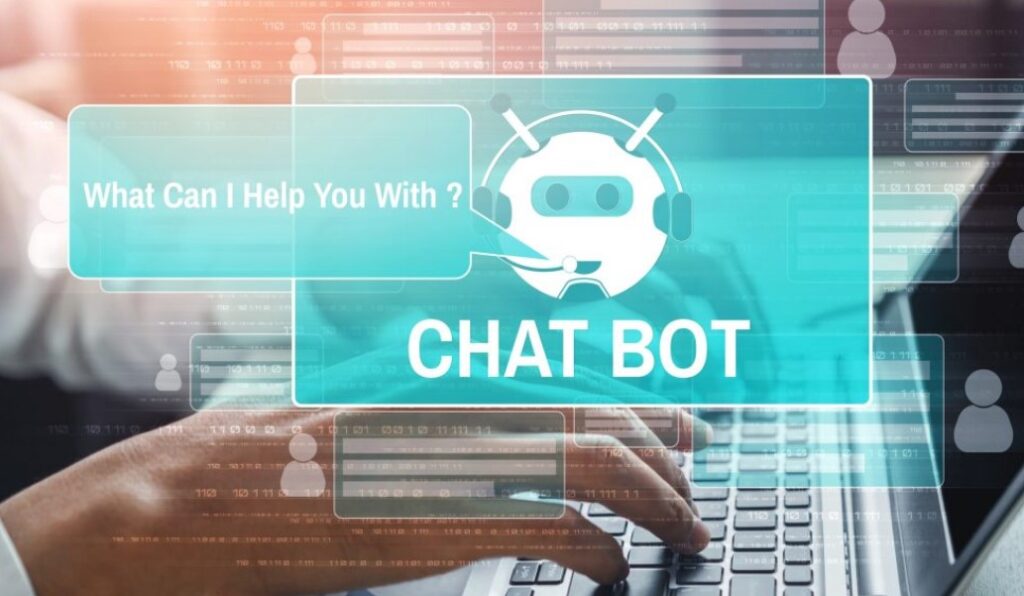Best AI Chatbot for 2024: Top Solutions for Your Business
In the ever-evolving digital landscape, businesses are increasingly turning to AI chatbots as essential tools to streamline customer service, improve operational efficiency, and drive better user engagement. AI chatbots are designed to understand human language, answer inquiries, and even assist with decision-making, all while reducing the strain on customer service teams. In 2024, the advancements in artificial intelligence have taken these chatbots to new heights, offering more personalized, scalable, and intelligent solutions. This article will dive deep into the best AI chatbot solutions available for your business, exploring their features, benefits, pricing, and providing detailed information on how to choose the right solution for your specific needs.
What is an AI Chatbot?

An AI chatbot is a software application powered by artificial intelligence designed to simulate conversations with users through text or voice. Unlike traditional chatbots that follow simple rule-based logic, AI chatbots leverage advanced technologies like Natural Language Processing (NLP) and Machine Learning (ML) to understand, process, and respond to human language more effectively. AI chatbots are capable of interpreting the meaning behind user queries, making them highly effective for customer service, sales, marketing, and more.
These chatbots are deployed across various platforms, including websites, mobile apps, social media channels, and even voice-activated devices like Amazon Alexa or Google Assistant. By utilizing machine learning, AI chatbots can continuously improve their responses based on historical data, providing increasingly accurate and helpful answers over time.
The Benefits of Using AI Chatbots
AI chatbots offer numerous advantages that can significantly improve business operations and enhance customer experiences. Here are some of the key benefits of using AI chatbots:
1. 24/7 Availability and Instant Response
AI chatbots are available around the clock, providing businesses with the ability to engage customers at any time, day or night. This constant availability ensures that customers can get quick responses to their queries, even outside of regular business hours. This improves customer satisfaction by reducing wait times and delivering immediate support.
2. Cost Savings
AI chatbots help businesses reduce the costs associated with customer service. By automating routine tasks and handling repetitive inquiries, chatbots minimize the need for large customer support teams. This allows businesses to allocate resources more efficiently, saving both time and money while still providing high-quality service.
3. Scalability
Unlike human agents, AI chatbots can handle an unlimited number of interactions simultaneously. This scalability is especially valuable during periods of high demand, such as during product launches or holiday sales, when customer inquiries tend to spike. AI chatbots can seamlessly manage these surges, ensuring that no customer is left unattended.
4. Improved Customer Experience
AI chatbots provide faster, more accurate responses tailored to each customer’s needs. With their ability to understand natural language and learn from past interactions, chatbots can offer personalized solutions, making customers feel valued and understood. This leads to higher satisfaction and loyalty.
5. Data Collection and Insights
AI chatbots gather valuable data from user interactions, offering businesses insights into customer preferences, behavior, and pain points. This data can be used to refine marketing strategies, improve products or services, and make informed business decisions.
Key Features of AI Chatbots

AI chatbots are becoming essential tools for businesses looking to enhance customer service, improve engagement, and automate communication processes. The following are the key features that make AI chatbots highly effective in transforming customer experiences and boosting business productivity.
1. Natural Language Processing (NLP)
One of the core features that sets AI chatbots apart is their ability to understand and process Natural Language Processing (NLP). NLP allows the chatbot to interpret human language in a way that is contextually accurate. This means AI chatbots can handle a wide variety of questions, even those phrased differently by users, making conversations feel more natural.
- Contextual Understanding: The chatbot can understand the meaning behind phrases. Even if there are variations in the language used.
- Continuous Improvement: Over time, NLP algorithms improve as the chatbot interacts more with users, enhancing its ability to understand complex language.
2. Machine Learning (ML) Capabilities
Machine Learning (ML) is a powerful feature that enables AI chatbots to continuously improve based on historical interactions. As the chatbot processes more conversations, it learns from previous exchanges and becomes more accurate in predicting user intent and providing useful responses.
- Self-Improvement: Chatbots adapt to new queries and evolve based on user data, allowing for more relevant responses.
- Better Customer Interaction: ML helps in understanding user preferences and tailoring responses, which improves the overall customer experience.
3. 24/7 Availability
AI chatbots offer 24/7 availability, meaning they can provide constant support to customers at any time of day or night. This eliminates the limitations of human working hours and ensures that customer inquiries are addressed immediately, regardless of time zone differences.
- Round-the-Clock Support: Customers can get answers to their questions at any hour, improving customer satisfaction.
- Global Reach: AI chatbots are particularly beneficial for businesses with international customers, offering consistent service at all times.
4. Multi-Channel Support
AI chatbots are designed to operate across multiple platforms, which is known as multi-channel support. This includes websites, mobile apps, social media platforms, and messaging services like WhatsApp, Facebook Messenger, and more. By being present on different channels, AI chatbots ensure businesses can interact with customers through their preferred methods.
- Consistency Across Channels: Whether on a website, social media, or mobile app, the chatbot can maintain a consistent user experience.
- Increased Customer Engagement: Multi-channel support helps businesses engage users where they are most active, improving customer interaction rates.
5. Personalized Interactions
Personalized interactions are made possible through the chatbot’s ability to learn from previous conversations and analyze customer data. By offering tailored responses based on user history and preferences, AI chatbots create a more engaging and individualized experience for each customer.
- Customized Responses: Chatbots use past interactions to tailor messages, such as suggesting relevant products or addressing specific customer needs.
- Enhanced Customer Relationships: Personalization helps build stronger customer relationships by making users feel heard and valued.
6. Seamless Integration with Existing Systems
AI chatbots are designed to integrate seamlessly with existing business systems, such as customer relationship management (CRM) tools, e-commerce platforms, and helpdesk software. This integration allows chatbots to provide more accurate, relevant, and personalized responses.
- Unified Customer Data: Integration ensures that chatbots have access to updated customer data, making responses more relevant and effective.
- Streamlined Operations: Automation of processes and data flow between systems helps improve internal efficiencies and reduce manual intervention.
7. Analytics and Reporting
AI chatbots come with built-in analytics and reporting features, providing businesses with valuable insights into user behavior, satisfaction levels, and common queries. These analytics can help businesses make data-driven decisions and optimize their customer service operations.
- Tracking Performance: Analytics help monitor the chatbot’s performance, such as response times, user engagement, and successful interactions.
- Continuous Optimization: Businesses can identify areas for improvement and adjust chatbot workflows to ensure better service quality.
Top 3 Best AI Chatbots for 2024

In this section, we will explore three of the most highly recommended AI chatbot solutions for businesses in 2024. Each solution offers unique features, capabilities, and pricing structures that cater to various business needs.
1. Dialogflow by Google Cloud
Dialogflow is an advanced AI-powered chatbot platform developed by Google Cloud. It allows businesses to create conversational agents for websites, mobile apps, and even voice assistants like Google Assistant. One of the standout features of Dialogflow is its powerful Natural Language Processing (NLP), which enables the chatbot to understand and respond to user queries with great accuracy.
Features:
- Natural Language Understanding: Dialogflow excels in processing and understanding natural language, making it ideal for businesses looking to provide a more conversational and human-like experience.
- Multilingual Support: With over 20 languages supported, Dialogflow is a great option for global businesses that need to engage with customers in different regions.
- Prebuilt Agents: Dialogflow offers prebuilt agents for common use cases such as customer support, which can help businesses get started quickly.
- Integration with Google Cloud Services: Businesses can easily integrate Dialogflow with other Google services, such as Google Cloud Functions, Google Analytics, and more.
Use Cases:
- Ideal for businesses with complex support needs or those looking to integrate a chatbot with other Google services.
- Suitable for businesses that require multilingual support or global scalability.
Pros:
- Robust NLP capabilities allow for accurate interpretation of customer queries.
- Seamless integration with Google services and third-party platforms.
- Highly scalable and customizable.
Cons:
- Setup and configuration require technical expertise.
- Pricing can be high for smaller businesses.
Price: Dialogflow offers a free tier for basic functionality. The paid plan starts at $0.002 per query for standard features, with enterprise plans available for larger businesses.
2. Intercom
Intercom is one of the most popular AI chatbot platforms, offering a combination of AI-powered automation and live chat support. The Intercom is particularly known for its ability to scale with businesses as they grow, providing solutions for everything from customer support to sales and marketing automation.
Features:
- Automation and AI-Powered Responses: Intercom’s chatbot is capable of automating responses to frequently asked questions, scheduling meetings, and guiding customers through sales funnels.
- Customizable Workflows: Businesses can create personalized workflows based on customer behavior and segment customers accordingly.
- Real-Time Chat Integration: While the chatbot handles basic inquiries, users can easily escalate to a live agent when necessary, offering a seamless customer experience.
- In-App Messaging: Intercom allows businesses to engage with users directly within their mobile apps, enhancing customer engagement.
Use Cases:
- Suitable for SaaS businesses, e-commerce platforms, and service-based industries.
- Perfect for businesses looking for a mix of AI automation and human interaction.
Pros:
- Comprehensive tool that combines marketing, sales, and customer support features.
- Easy integration with multiple platforms, including social media and websites.
- Highly customizable and scalable.
Cons:
- Pricing can be expensive, especially for small businesses.
- The platform may have a steeper learning curve for beginners.
Price: Intercom’s pricing starts at $74 per month for the “Essential” plan, with more advanced features available on higher-tier plans.
3. Tidio
Tidio is a user-friendly and affordable AI chatbot platform that is ideal for small and medium-sized businesses. A Tidio focuses on providing simple, yet effective chatbot solutions that can be deployed quickly and efficiently.
Features:
- Live Chat and Chatbot Integration: Tidio combines live chat with chatbot automation, allowing businesses to switch between automated responses and human agents seamlessly.
- Multi-Channel Support: Tidio integrates with various messaging platforms, including Facebook Messenger, WhatsApp, and email, allowing businesses to engage with customers across multiple channels.
- Customizable Chatbot Flows: Tidio allows users to create customized chatbot workflows to meet specific business needs.
Use Cases:
- Best for small businesses looking for an affordable, easy-to-use AI chatbot solution.
- Suitable for businesses that want to provide multi-channel support without a large team.
Pros:
- Affordable pricing with a free plan available.
- Easy to set up and integrate with existing systems.
- Multi-channel support ensures businesses can reach customers on their preferred platforms.
Cons:
- Some advanced features are only available in paid plans.
- Less customizable compared to enterprise-level platforms like Dialogflow and Intercom.
Price: Tidio offers a free plan with essential features. Paid plans start at $18 per month, with more advanced features available in higher-tier plans.
How to Choose the Best AI Chatbot for Your Business
When selecting the best AI chatbot for your business, it’s essential to consider several factors to ensure the platform aligns with your goals:
- Business Size and Requirements:
Consider the scale of your business and your specific use cases. Large enterprises might require an enterprise-level solution like Dialogflow, while small businesses may benefit from the simplicity and affordability of Tidio. - Budget:
While AI chatbots offer significant benefits, the cost can vary greatly depending on the features and scale you need. Consider your budget when selecting a chatbot, and be sure to factor in long-term costs for scaling and additional features. - Integration Needs:
Ensure that the AI chatbot you choose integrates with your existing tools, such as CRM systems, helpdesk platforms, and social media channels. This will help you maximize the efficiency and impact of your chatbot solution.
Frequently Asked Questions
Q1: What is the best AI chatbot for small businesses?
A1: Tidio is considered one of the best AI chatbots for small businesses due to its affordability, ease of use, and essential features that help small teams manage customer support effectively.
Q2: How much does an AI chatbot cost?
A2: The cost of AI chatbots can vary. Basic plans start around $18/month, while more advanced platforms like Dialogflow and Intercom can cost upwards of $74/month, depending on features and usage.
Q3: Can AI chatbots be integrated with my website?
A3: Yes, most AI chatbots can be integrated with websites using plugins, APIs, or built-in integrations with website platforms. Popular solutions like Tidio, Intercom, and Dialogflow all offer seamless integration with websites.